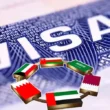The European Union Aviation Safety Agency (EASA) has issued a recommendation to airlines, advising them not to fly below FL 260 altitude while traversing over Lahore and Karachi in Pakistan. The advisory comes in light of the “current security situation in Pakistan with the presence of violent non-state actor groups with confirmed anti-aviation weaponry, possibly MANPADS (man-portable air-defence systems)”.
EASA’s advisory, though non-binding, highlights the potential risks posed to civil aviation operations at altitudes below FL 260. The agency emphasized that the ongoing security situation in the region, including the Kashmir territorial dispute and sporadic military operations, could inadvertently endanger civil aviation, especially in the Lahore Flight Information Region (OPLR).
While EASA’s advice is not mandatory, it encourages air operators to incorporate this information into their risk assessments and to consider any relevant guidance or directions from their respective national authorities.
EASA also referred to similar advisories issued for French and German air operators in the past year. However, it’s essential to note that EASA did not mention any specific threats targeting flights into, out of, or within Pakistan.
This is not the first time EASA has cautioned airlines regarding airspace safety in Pakistan. In November last year, the agency issued a similar advisory, recommending caution and avoidance of flights below 24,000 feet (7,300 meters) over the country.
In response to EASA’s advisory, Pakistan’s Civil Aviation Authority (CAA) assured that the instructions are routine and that there have been no reports of any threat to European airlines operating in Pakistan’s airspace. The CAA emphasized that Pakistan’s airspace remains entirely safe for all commercial flights, and stringent measures are in place to ensure aviation security.
EASA, as a neutral body, is responsible for maintaining confidence in safe air operations in Europe and globally. It formulates rules, standards, and guidance, certifies aircraft and equipment, and oversees aviation organizations across all domains of the aviation industry.









